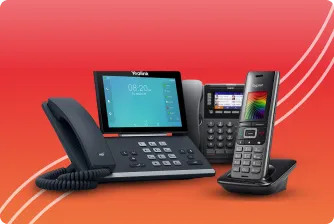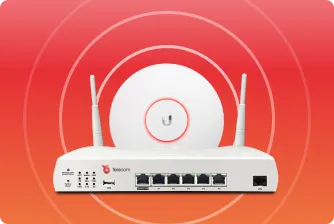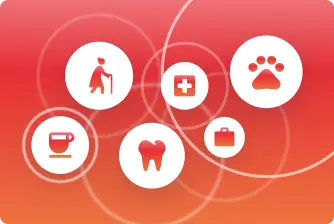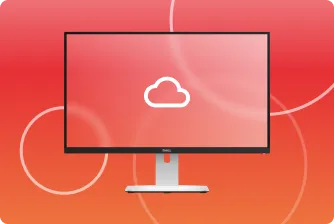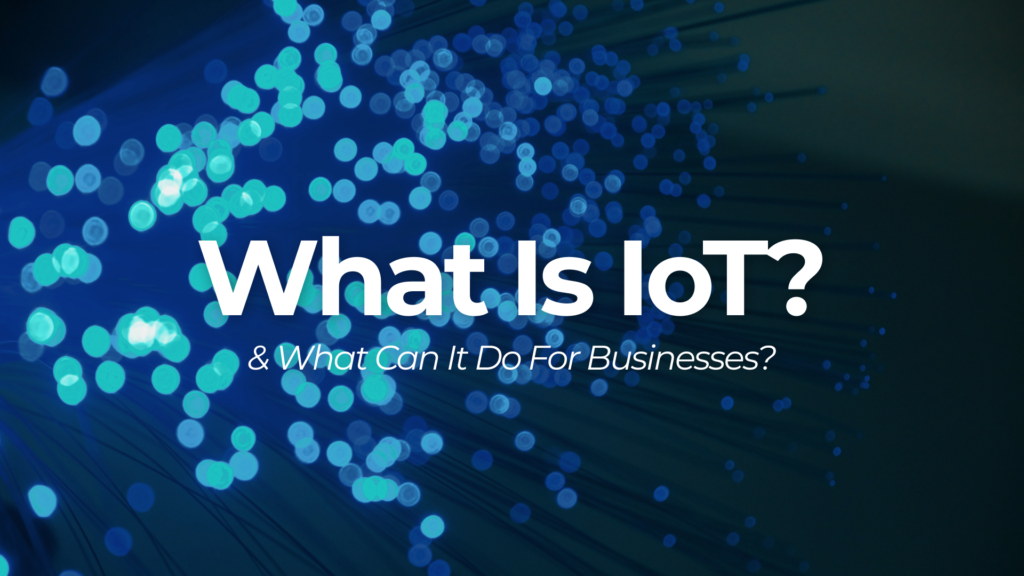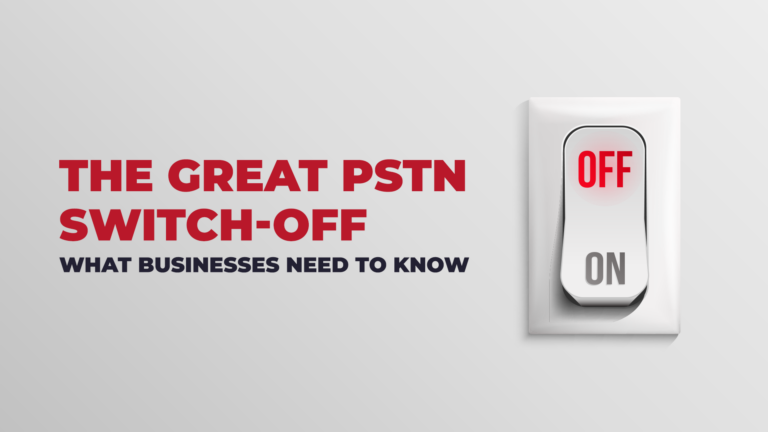In the rapidly evolving world of business, technology is changing the way we work at an unprecedented pace. One of the latest technological advancements that have emerged is the Internet of Things (IoT). This technology has the potential to revolutionize the way businesses operate by providing them with smart access to real-time data and analytics that can help them make more informed decisions, improve efficiency, and reduce costs. The impact of IoT on businesses is expected to be substantial, and it is quickly becoming a crucial aspect of modern business operations.
So, in this blog post, we’ll delve into the ways in which IoT is transforming the business landscape and how businesses can leverage this technology to gain a competitive edge.
What Is IoT?
The Internet of Things (IoT) refers to a network of physical devices, appliances, and vehicles that are embedded with sensors, software, and internet connectivity – allowing them to collect and share data. These devices can be as simple as a smart thermostat or as complex as a self-driving car. They communicate with each other and the user, providing real-time data and insights that can optimise processes, increase efficiency, and improve user experience.
Although IoT is a relatively new concept to many people, its origins can be traced back to 1982 when a grad student in the US connected a Coca-Cola vending machine to the internet and created an application that could check the temperature and availability of drinks. This early example paved the way for the IoT technology that we see today. IoT was officially recognised as a distinct technology in 1999, and its applications have increased exponentially since then.
IoT has become a significant area of innovation and investment for companies and individuals alike. According to an IDC report, corporate spending on IoT was expected to reach a massive $745 billion by 2022.
IoT technology has the potential to revolutionise several industries – in particular healthcare, agriculture, manufacturing, and transportation. In healthcare, IoT devices can monitor vital signs and send alerts to healthcare providers, potentially saving lives. In agriculture, IoT can optimise water and fertiliser usage, leading to more sustainable practices. In manufacturing, IoT can improve supply chain management and reduce waste. In transportation, IoT can enable self-driving cars and improve traffic flow. One piece of technology that can streamline countless business processes.
As internet connectivity becomes increasingly available, the potential applications of IoT technology are vast. Both individuals and organisations stand to benefit from the convenience and efficiency of IoT-based solutions. The future of IoT is bright, and we can expect to see even more innovative uses of this technology in the coming years.
IoT Applications in the Real World
By using real-time data management and task automation – thanks to IoT – firms can run their business more innovatively and efficiently. One of the benefits of IoT technology is the ability to design and implement more robust risk management strategies. This technology can improve operational performance and help companies make informed decisions. IoT devices also support advanced functions like task automation and remote control devices, allowing companies to maintain an optimized balance between energy usage and conservation. This helps companies to be more energy-efficient and reduce their carbon footprint, contributing to their social responsibilities towards the environment.
There are several real-world applications of IoT technology, including smart homes, smart cities, and smart healthcare. In a smart home, IoT devices can control lighting, heating, and other home appliances, making life more convenient and comfortable. In a smart city, IoT devices can be used for traffic management, public safety, and environmental monitoring. In smart healthcare, IoT devices can monitor patients remotely, reducing the need for hospital visits and improving patient outcomes.
As we’ve mentioned, IoT technology is also transforming the manufacturing industry, with the introduction of smart factories. In smart factories, IoT devices are used to optimise production processes, reduce downtime, and improve overall efficiency. This technology enables factories to become more flexible and responsive to market demands.
In conclusion, IoT technology has the potential to revolutionise various industries by improving operational efficiency, reducing energy consumption, and enhancing risk management strategies. As more companies adopt this technology, we can expect to see more innovative and efficient ways of doing business in the future.
Here are 6 examples of IoT in the Business World…
1. IoT Tracking and Monitoring
One common use of IoT technology is for asset tracking. This means using special devices that can track and monitor the location and status of valuable items such as equipment, tools, or vehicles. IoT asset-tracking devices use either GPS or radio frequency (RF) technology to do this.
These smart devices can also be used for long-range identification and verification of assets. This means that businesses can easily verify the location and status of their assets without having to physically check them. This can save time and money, and also reduce the risk of theft or loss.
2. Sensors
Sensors are essential components in the Internet of Things (IoT) ecosystem. Simply put, they are devices that can detect changes in their surroundings and transmit this information to other devices. This allows for real-time monitoring and control of physical environments, making it possible to improve efficiency and reduce costs in a variety of applications.
IoT sensors come in different types, but they all work by collecting data from the environment and transmitting it to a central system for processing. Some sensors are manual, meaning they require human intervention to take measurements, while others are digital and can be programmed to measure different types of data automatically. These sensors are typically connected to circuit boards, such as Arduino Uno or Raspberry Pi 2, which process and transmit the data they collect.
What sets IoT sensors apart from traditional sensors is their ability to send data to other connected devices. This allows for seamless automation and control of physical environments, enabling businesses to make data-driven decisions and take action in real-time. For example, IoT sensors can be used for predictive maintenance, which involves analysing data to identify potential problems before they occur. This can help businesses avoid costly downtime and repairs, while also improving the overall efficiency of their operations.
3. Smart Supply Chain Management
Managing a supply chain can be a complex and challenging task. However, thanks to smart technology and IoT devices, supply chain managers can make their work much easier and more efficient.
With the help of smart routing and rerouting algorithms, managers can make more accurate predictions about their supply chain. This is because IoT devices connected to packages can provide real-time information about their location through GPS and RFID signals. This information can then be used to make informed decisions about the supply chain, such as rerouting packages to avoid delays or congestion.
By using smart supply chain management programs, supply chain managers can also reduce uncertainty risks, minimise variance, and improve profitability. These programs offer a range of features such as inventory management, vendor relationship management, fleet management, and scheduled maintenance. By making use of these features, managers can better manage their inventory levels, optimise their fleet, and ensure that their equipment is well-maintained.
4. Smart Farming
Smart farming is an innovative approach to agriculture that uses IoT technologies to optimise various farming activities. With the help of IoT devices, farmers can determine the ideal time to harvest crops, create customised fertilisation profiles based on soil chemistry, and monitor soil nutrient and moisture levels.
One of the biggest advantages of smart farming is the ability to achieve precise farming, resulting in optimised production. A BI Intelligence report predicts that the market for agriculture IoT device installations will grow by 20% and reach 75 million by 2022.
There are several examples of IoT devices used in smart farming, such as Smart Elements, AllMETOE, and Pynco. These devices can detect weather conditions and other environmental data, providing farmers with valuable insights into the health of their crops.
The concept of smart farming has the potential to revolutionise the agriculture industry, providing farmers with new and innovative ways to boost both the quality and quantity of their production. By leveraging IoT technologies, farmers can optimise their operations, improve their yields, and reduce waste – leading to a more sustainable and profitable industry.
With the help of IoT technologies, farmers can optimise their operations and achieve better outcomes, benefiting both the farmers and the consumers who rely on their products.
5. Smart Bar Code Reader
Managing inventory can be a daunting task for retailers, but with the help of IoT barcode readers, it can be easier and more efficient than ever before. These devices use AI-based digital signal processing to optimise the operations of various sectors, including retail, logistics, and warehouses.
One of the most significant advantages of IoT-based barcode readers is their ability to connect with other systems via cloud data connections. By using connected barcode readers, managing inventory becomes a breeze.
Moreover, IoT barcode readers can also be incorporated into shopping carts, making the checkout process smoother and faster. These devices use AI-based sensors to detect products as they are added or removed from the cart, and they automatically transfer the data to the computer. This not only saves a lot of time at checkout but also provides customers with an improved shopping experience.
By using IoT barcode readers, retailers can streamline their inventory management processes and optimise their operations. With its user-friendly and efficient design, the Smart Bar Code Reader is set to revolutionise the future of inventory management.
6. Smart Grid
The smart grid is a technology that helps utility companies manage the production and distribution of electricity more efficiently. By using sensors and computers, the grid can constantly monitor the supply and demand of electricity in real time.
One of the benefits of the smart grid is that it allows utility companies to quickly detect and respond to power outages. By analysing data from sensors, they can identify the source of the outage and dispatch repair crews to fix it more quickly. This helps to reduce the amount of time that customers are without power.
Another advantage of the smart grid is that it helps utility companies manage the distribution of electricity more effectively. By analysing data from sensors located throughout the grid, they can identify areas where demand is highest and adjust production accordingly. This helps to reduce the likelihood of power shortages and ensures that customers have access to reliable power.
The smart grid also allows utility companies to connect all of their assets, including meters and substations. By doing so, they can exercise greater control over the power infrastructure and resources. This helps to ensure that the grid operates more efficiently and that customers have access to better-quality energy.
Conclusion
The Internet of Things (IoT) offers endless opportunities for businesses. IoT technology has already caused disruptions in a lot of different industries. The business landscape is slowly changing with the evolution of IoT technology. Understanding the origin and the application of IoT can put your business in a better position to make the most of the technology. Competition in the next decade will be largely defined by how companies leverage innovative technologies. IoT will be the foremost technology that is expected to determine the fate of many businesses.
Here at Yo, we’re all about improving the success of the businesses we deal with. So, If you are interested in learning more about business telecoms, improving your business development, or generally future-proofing your business – enter your contact details into the form below and we’ll be in touch with how we can help you and your business TODAY!

